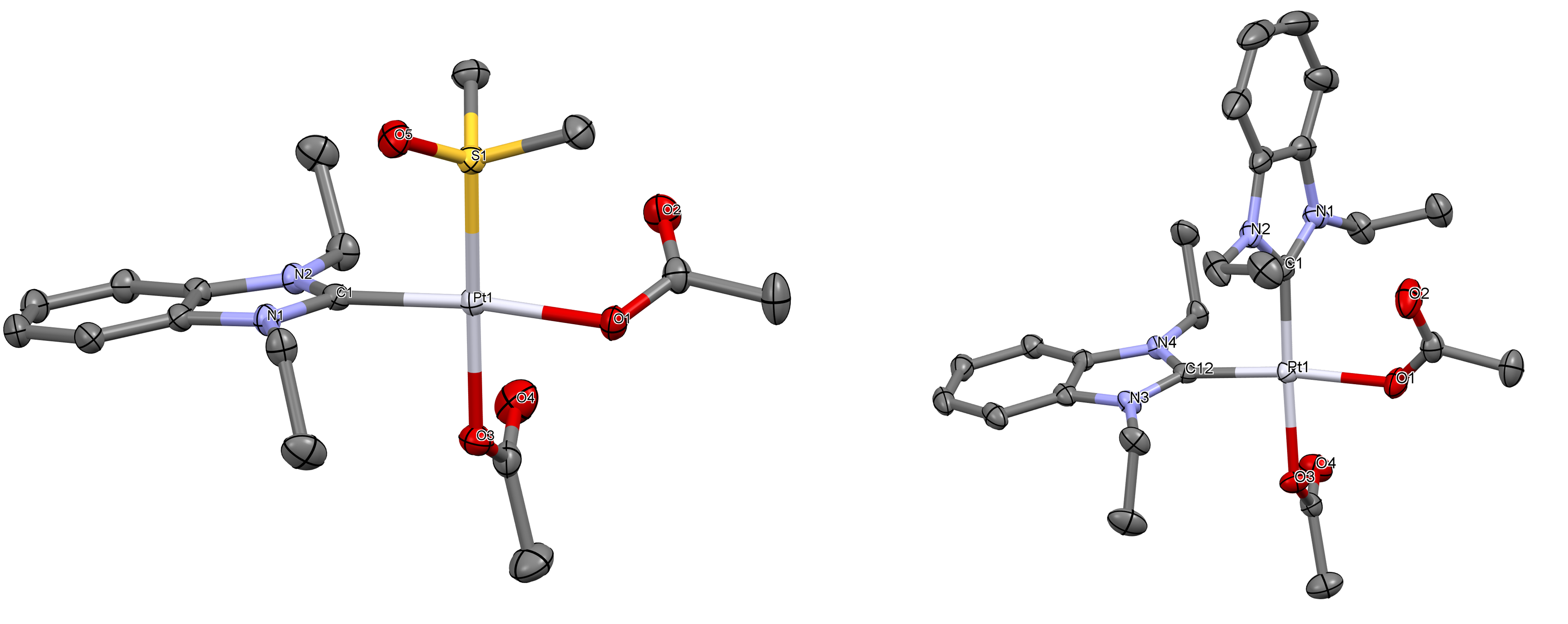Poster Presentation 21st International Conference on Biological Inorganic Chemistry 2025
Ligand Exchange and Encapsulation Strategies to Advance the Drug-Like Properties of Benzimidazole-Based Pt-NHC Complexes (#469)
Platinum complexes with N-heterocyclic carbene (NHC) ligands are promising anticancer drug candidates; however, their potential is limited by poor solubility and premature inactivation before reaching cancer cells. This study focuses on developing water-soluble N,N-dialkylbenzimidazol-2-ylidene platinum complexes and incorporating them into advanced drug delivery systems to enhance their accumulation in cancer cells.
A series of new Pt(II)-NHC complexes of the benzimidazol-2-ylidene type, featuring mono- or bidentate carboxylato ligands, were synthesized and thoroughly characterized using multinuclear NMR spectroscopy, ESI-HRMS, and X-ray crystallography. Their stability in aqueous and cell culture media was assessed by 1H NMR spectroscopy and RP-HPLC. Cytotoxicity was investigated in various cancer and non-cancerous cell models, including co-cultures with cancer-associated fibroblasts. To gain further insights into the mechanism of action of the complexes, we also investigated their ability to induce apoptosis and immunogenic cell death.
Most complexes demonstrated cytotoxicity comparable to or greater than the clinically used drug carboplatin, with selectivity for cancer cells over non-cancerous stromal bone marrow cells. Encapsulation of selected compounds in bacterial ghosts (BGs), originating from two different non-pathogenic bacterial strains, Escherichia coli Nissle 1917 and Escherichia coli NM522, significantly enhanced their accumulation in ovarian cancer cells and increased cytotoxicity.
The use of appropriate carboxylate leaving groups enhances the solubility and hydrolytic stability of Pt-NHC complexes without compromising cytotoxicity against cancer cells. Furthermore, encapsulation in BGs provides a promising strategy for targeted delivery of Pt-NHC complexes to cancer cells.
